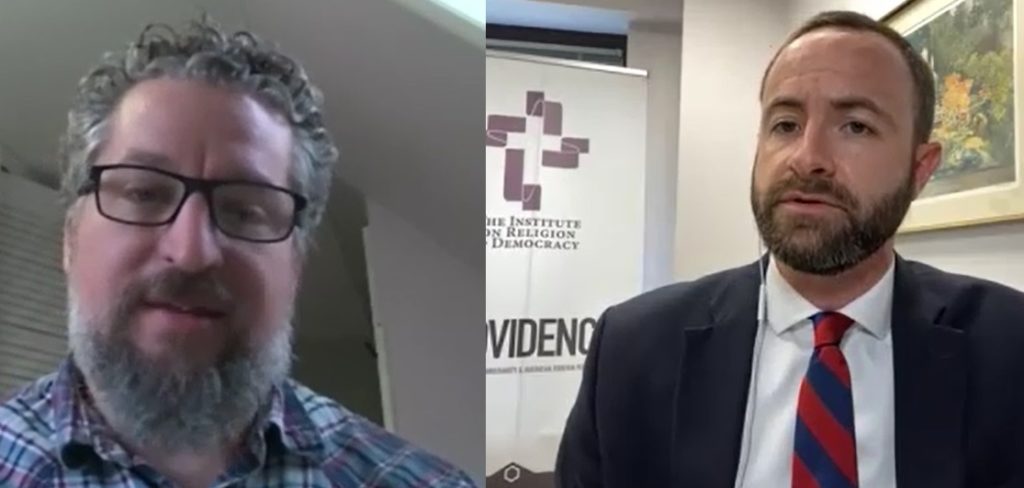May 15 marks annual commemoration of the Nakba, Arabic for “catastrophe” at the founding of the modern State of Israel. U.S.-based oldline Protestant church agencies, including the Presbyterian Church (USA) Mission Agency and the Global Ministries of the United Church of Christ (UCC) and Christian Church (Disciples of Christ) mark this day.
IRD’s Jeff Walton asks Philos Project Deputy Director Luke Moon about conflicting oppressor/oppressed narratives, an increasing role for Global South Christians, and a strong correlation between biblical literacy and pro-Israel support among Evangelical Christians.
Learn more about the work of the Philos Project here to promote a pluralistic Near East based on freedom and the rule of law where nations, tribes, and religious communities can live beside each other as neighbors.





Comment by Karen Booth on May 15, 2020 at 3:08 pm
I’m not even sure I want to open up this can of worms.
I almost couldn’t get past Luke Moon’s opening answers in order to watch the rest of the interview. That’s because I think his definition/description of Nakba Day was a bit disingenuous.
Yes, it happens to coincide with the official establishment of the State of Israel. But it’s called “the catastrophe” (Nakba in Arabic) because of the RESULTS for the Palestinian people: the dislocation and displacement (often not voluntary) of over 750,000 people and the destruction of 500 local villages. Which was often accompanied by rape, murder and intimidation.
I’m glad I watched the rest of the video, I’m glad I checked out the Philos Project website, and I’m glad Moon’s organization is committed to pluralism in the area and a Two-State reality. But until and unless justice is part of the equation, I have my doubts that solution will work.
And because I know that I am going to get questioned regarding my “expertise” to speak on this issue: I have traveled to the Holy Land half a dozen times, have spoken to many different Israeli and Palestinian people and spent the first month of lock-down reading extensively from a variety of perspectives.
Comment by Earl H. Foote on May 15, 2020 at 6:53 pm
There were also 750,000-800,000 Jews displaced from Arab lands after the founding of Israel. Many of the Arabs who fled from Israel were urged, or ordered, to do so by Arab leaders, who were convinced that they would wipe out the new Jewish State quickly and bring everyone back home. Since all 750,000 or so Jewish refugees have been absorbed into Israel or elsewhere, mostly Israel, and since a baby born during the “nakba” would now be 72 years old, maybe it’s time that the few remaining refugees and their many descendants find new homes, maybe in neighboring Arab countries where people speak their language and follow their religion and their customs. There is a possibility of a Palestinian state, but only if the Arabs are willing to accept Israel’s existence and live in peace with it. Having an annual day of mourning at the founding of Israel does not bode well. The Arabs who stayed in Israel, while facing some discrimination, have achieved legal equality and many opportunities. For example, one of the supreme court justices is an Arab. And then we have the appalling treatment Arab governments have given to their Palestinian “Arab brothers.” That is the real nakba.